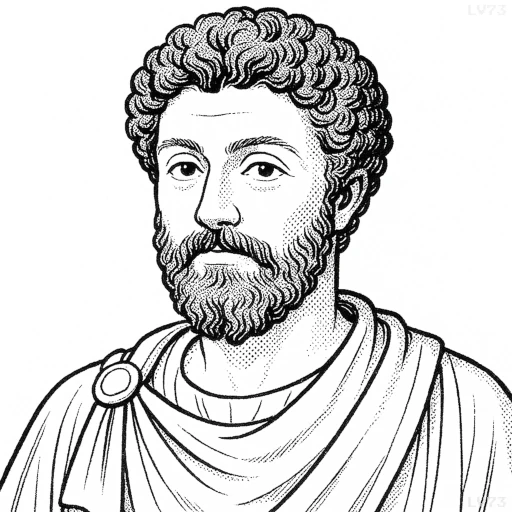“Look back over the past, with its changing empires that rose and fell, and you can foresee the future, too.”

- April 26, 121 – March 17, 180
- Roman Empire
- Roman Emperor
table of contents
Quote
“Look back over the past, with its changing empires that rose and fell, and you can foresee the future, too.”
Explanation
In this quote, Marcus Aurelius reflects on the cyclical nature of history, noting that by examining the rise and fall of past empires, we can gain insight into the patterns that govern the future. The essence of this Stoic wisdom is that history repeats itself, and by studying past events, societies, and rulers, we can recognize patterns of human behavior and the forces that drive change and decay. The fall of empires and the rise of new ones are not random but part of an ongoing cycle driven by human choices, actions, and moral or political dynamics.
Aurelius, as both a Stoic philosopher and an emperor, was keenly aware of the transience of power. His own reign as ruler of the Roman Empire was marked by constant challenges—wars, political struggles, and social unrest. Understanding the fate of previous empires, he knew that the fluctuations of history—with periods of growth followed by decline—were inevitable. This perspective remains relevant today, as we see modern societies, governments, and institutions rise and fall. The key takeaway is that history provides valuable lessons, not only about the nature of power and civilization but also about the choices that shape our future.
In practical terms, this quote encourages us to learn from history to better navigate our present and future. By studying past mistakes and successes, we can identify warning signs and make more informed decisions in both personal and societal matters. For example, when facing societal challenges or political tensions, understanding the recurrent themes of past civilizations can help us anticipate outcomes and make more thoughtful choices. Recognizing that the patterns of history are often repeated encourages us to act with greater wisdom and foresight, avoiding the errors of the past.
Would you like to share your impressions or related stories about this quote in the comments section?




